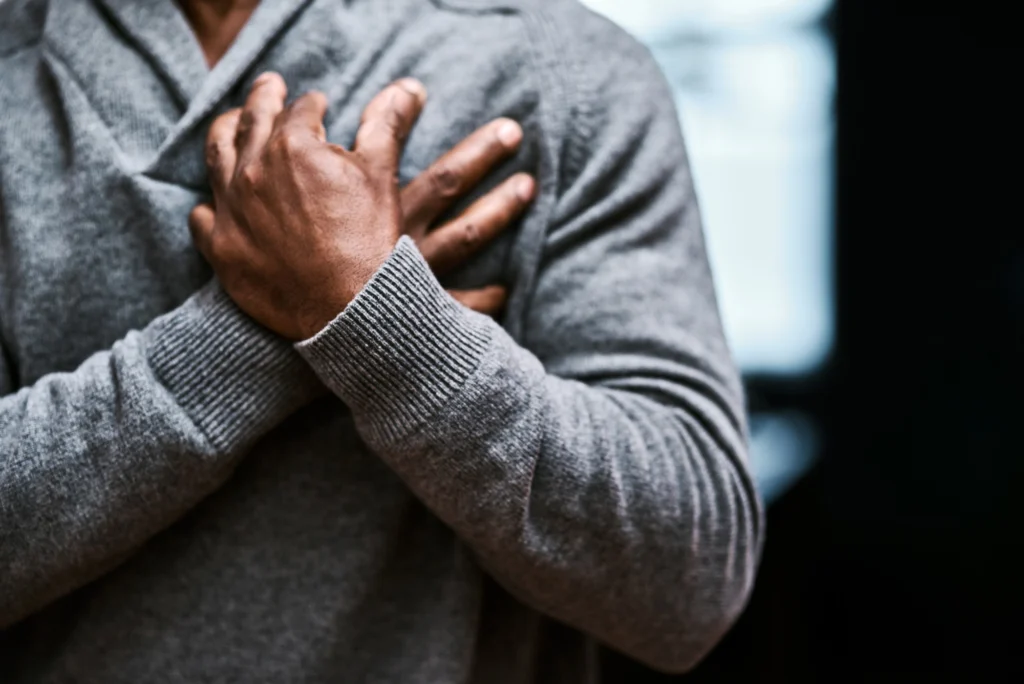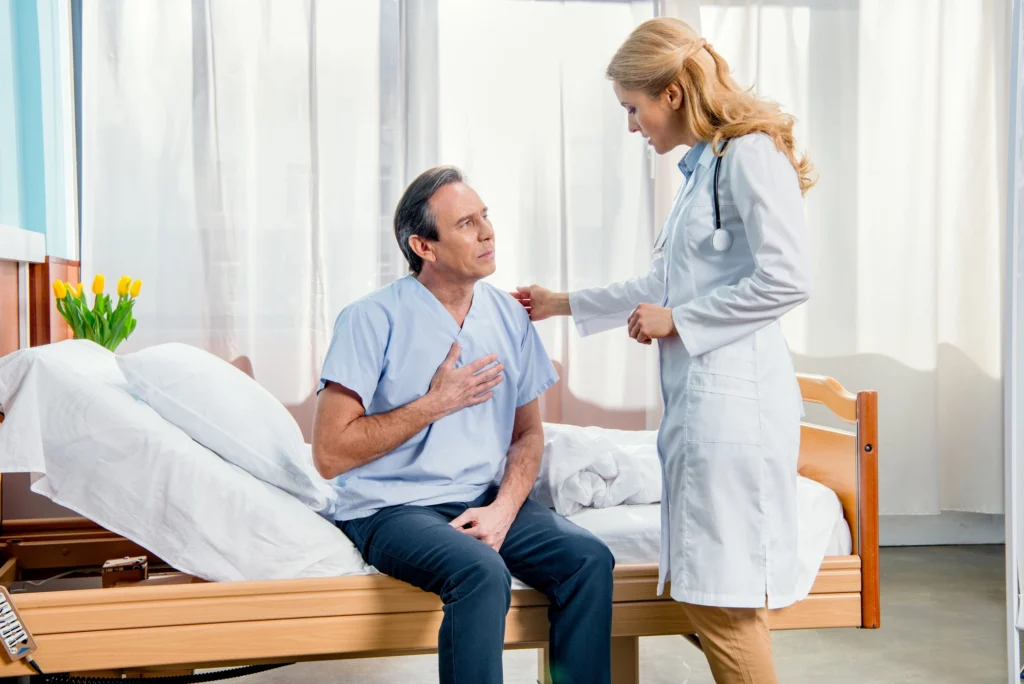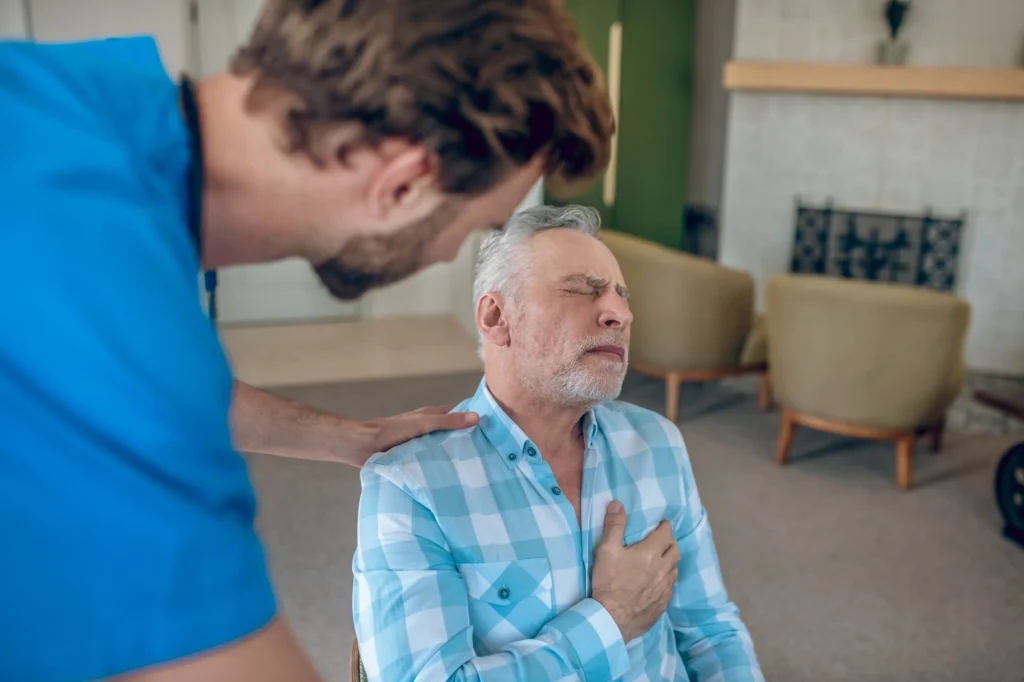
Table of Contents
ToggleChest pain can be caused by a number of things, including heart problems and other medical conditions. But you may also experience chest pain if you have back pain.
Chest pain can vary in severity and intensity. Severe chest pain is often indicative of a serious condition that requires immediate medical attention. However, mild to moderate chest pain may not require any treatment at all.
Back pain is common and can be caused by a number of factors, such as sitting too long at work or playing sports without proper warm-up exercises. The back is made up of vertebrae that are connected together by ligaments, muscles, tendons and joints. A small injury to one part of the back can cause radiating pain throughout the body.
If you have back pain, it’s vital to take steps to avoid further injury and reduce inflammation in order for your body to heal properly before it becomes chronic or severe.
The short answer is yes. But there are many reasons why that could happen, so you’ll need to know the symptoms and causes of both types of pain before you can figure out what’s going on.
Back pain may make it hard for you to breathe, or your chest may hurt when you move or cough because the muscles between your ribs are pulled tight by the pressure on them from your spine.
The most common cause of back pain is injury to your spine—often due to heavy lifting or awkward movements like twisting while carrying a heavy object. If you have a herniated disk (a bulge in one of your spinal disks), that can also cause pain in your chest.
Chest pains can be caused by heart disease or blood clots in the lungs, but they can also be caused by anxiety or panic attacks, indigestion, and other conditions unrelated to your heart or lungs.
Chest pain is often a symptom of heart disease, but it can also be caused by other conditions. In some cases, chest pain may be accompanied by other symptoms such as shortness of breath or nausea.
The most common type of chest pain is dull ache that occurs on one side of your body and lasts more than a few minutes. This kind of discomfort may come and go throughout the day or night–and it’s usually not serious unless you have other symptoms like shortness of breath or sweating associated with it.
If your chest feels like there’s something stuck in your throat when you take a deep breath, this could be due to muscle tightness in the diaphragm (the muscle below lungs). This type of discomfort usually goes away after taking several deep breaths over time.

When you have back pain, it’s easy to assume that it’s just your back. But in fact, the pain may be caused by something else entirely. It can be hard to tell where your pain is coming from—especially when it comes to upper back and chest pain.
Here are some common causes of upper back and chest pain:
Other causes of upper back and chest pain include:
While heart attack symptoms vary slightly in men and women, both can experience chest pain along with pain in other areas like the upper back.
A heart attack can cause chest pain to spread into your neck, along your shoulders, and into your back. It can also cause a feeling of pressure or tightness in your chest, along with shortness of breath.
It can also cause you to feel faint or lightheaded, nauseous, and cold sweats. Women are more likely to experience back pain and jaw pain with a heart attack.
If you have any of these symptoms, it’s important that you seek medical attention right away:

If you’re experiencing pain in your upper back and chest, it’s important to get it checked out by a doctor. He or she can help determine the cause of the discomfort and recommend treatment options for you.
Try using a heating pad on the area of discomfort at night before bedtime. Heat can help relax tight muscles, reducing pain when applied regularly over time.
Take over-the-counter pain relievers such as acetaminophen or ibuprofen, which are commonly used for minor aches and pains associated with exercise or overexertion. These medications may also be helpful if you have chest discomfort due to inflammation caused by heartburn.
It’s important not to take these medications unless directed by your physician because they can cause side effects such as stomach ulcers if taken long term.
Be sure whether they would be safe for you before starting them!
The answer is yes, back pain can cause chest pain.
If you have back pain, there is a chance that it can radiate into your chest and cause chest pain. This is because when your spine is out of alignment, it can affect the nerves in your body, which then causes problems in other areas of the body.
Back pain can be caused by an injury or overuse of muscles or joints in your back. It may also be caused by poor posture or poor sleeping habits. Back pain usually starts as a dull ache or tightness in your lower back but can progress to sharp shooting pains that shoot down your legs or up into your shoulder blades.
Chest pains are often related to heart disease so if you experience chest pains along with back pain, please see a doctor immediately!
GET IN TOUCH +
285 Sills Road
Building 5-6, Suite E
East Patchogue, NY 11772
(631) 475-5511
184 N. Belle Mead Road
East Setauket, NY 11733
(631) 675-6226
GET IN TOUCH +
285 Sills Road
Building 5-6, Suite E
East Patchogue, NY 11772
(631) 475-5511
184 N. Belle Mead Road
East Setauket, NY 11733
(631) 675-6226
SUBSCRIBE TO OUR NEWSLETTER +
Send us a Google review. Click this link and let us know how we did!
Review us on Yelp too.